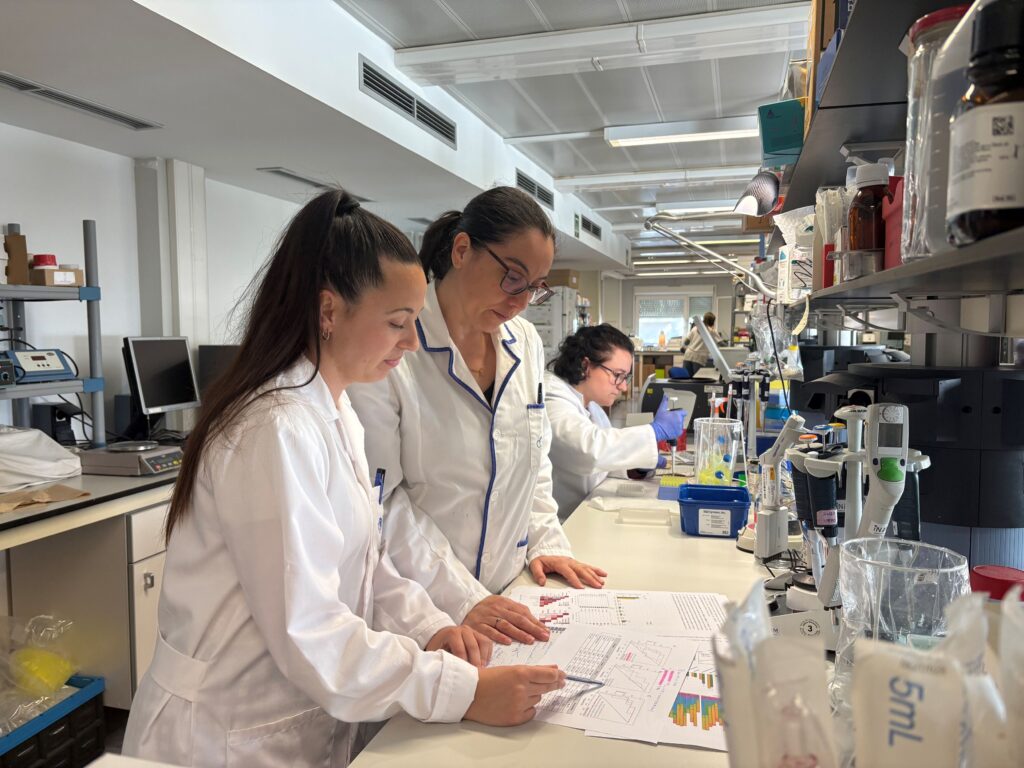The study, with the participation of Joan XXIII University Hospital and CIBER, analyzes 103 patients and highlights the relationship between hypertension and unfavorable disease progression

A study by the Infection and Immunity Research Group (INIM) of the Pere Virgili Health Research Institute (IISPV) has highlighted the relationship between hypertension, the most common pre-existing condition among COVID-19 patients, and a more severe progression of the disease, with a significant risk of hospitalization and death. The research team, led by Anna Rull and Joaquim Peraire, doctors at IISPV and the Joan XXIII University Hospital in Tarragona, and professors at the Rovira i Virgili University (URV), compared the molecules present in the bloodstream of hypertensive and non-hypertensive patients who experienced unfavorable progression of COVID-19.
For the study, samples from 103 patients were analyzed, including 63 who experienced unfavorable disease progression, of which 22 were hypertensive. The results show a clear association between hypertension and the severity of COVID-19, as 35% of patients who presented severe complications in the progression of COVID-19 had a prior diagnosis of hypertension.
The study has identified, in hypertensive patients, two molecules related to the activation of the cellular stress response, a key factor in the progression of COVID-19. Additionally, a comprehensive analysis of the lipid species content in blood has confirmed a critical role of phosphatidylcholines, the main component of cell membranes, in the immune system’s response to SARS-CoV-2 infection. Detecting molecules that show an altered pattern in blood at the onset of the disease can be a key strategy in diagnosing and anticipating severe complications. In this regard, the findings can help improve the prognosis and quality of life of hypertensive patients infected with the SARS-CoV-2 virus. However, the conclusions highlight the need for further research in the future with a larger sample of patients.
The study, recently published in the journal Scientific Reports (https://rdcu.be/ee3ZZ) by Springer Nature, is part of the research lines carried out by the Biomedical Research Network Center for Infectious Diseases (CIBERINFEC), with the participation of the INIM group of IISPV and the Translational Research Group in Immunology and Aging (TRIA) of IrsiCaixa. The work has involved collaboration with members of the Diabetes and Associated Metabolic Diseases Group (DIAMET), also from IISPV, which belongs to the Biomedical Research Network Center for Diabetes and Associated Metabolic Diseases (CIBERDEM).
The Pere Virgili Health Research Institute (IISPV) is the center that manages health and biomedical research in the province of Tarragona, bringing together the Joan XXIII University Hospital in Tarragona, Sant Joan de Reus Hospital, Pere Mata Institute in Reus, and Verge de la Cinta Hospital in Tortosa, as well as the Rovira i Virgili University. Since its creation in 2005, the Institute has worked to ensure that biomedical research translates into high-quality clinical practice for the benefit of patients and the improvement of public health. More than 600 professionals, including researchers, technicians, and trainees, are part of IISPV, which has 38 research groups distributed across four strategic areas: the area of Metabolic Diseases and Nutrition, with 16 research groups; the area of Infection, Immunity, and Environment, with a total of 10 groups; the area of Oncology, with 6 more research groups; and the area of Neurosciences and Mental Health, which integrates 6 research groups. IISPV is part of the network of Research Centers of Catalonia (CERCA).